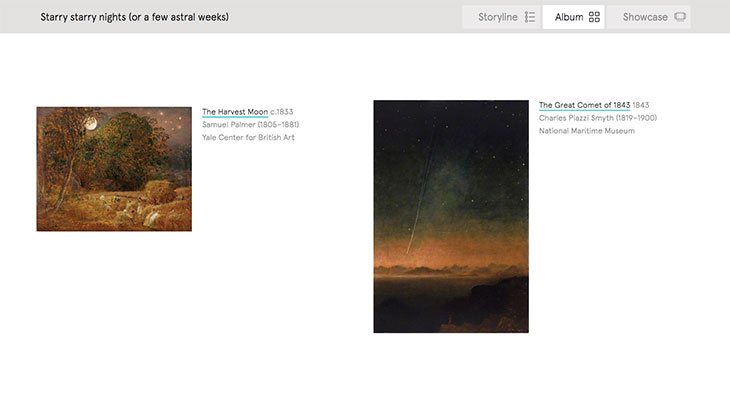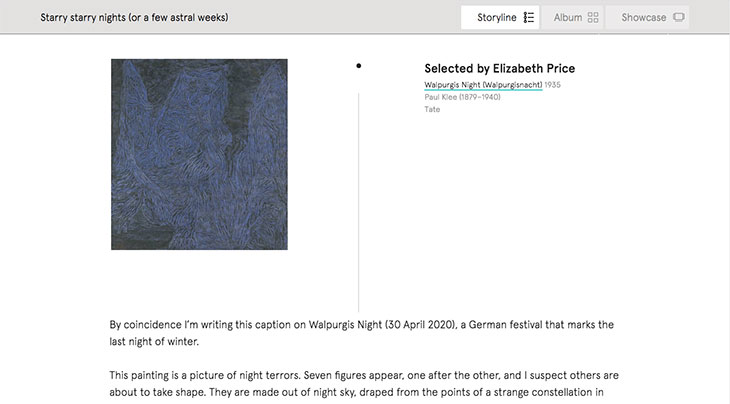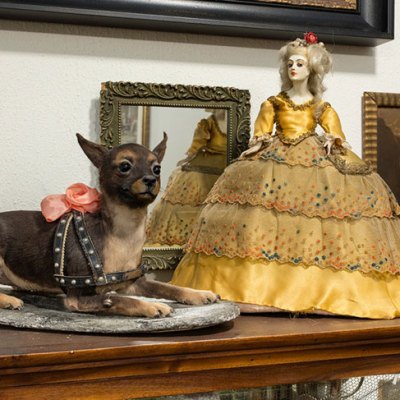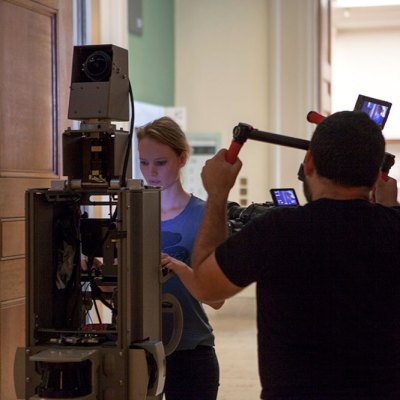Art UK is an online platform that enables public collections in the UK to share their holdings with audiences around the world. At the time of writing the organisation has digitised nearly 250,000 paintings and works on paper distributed across more than 3,000 venues, including museums, universities, historic houses, hospitals and other civic buildings. There are also a growing number of public sculptures.
When Art UK received the Apollo Digital Innovation of the Year Award in 2016, Apollo’s editor Thomas Marks wrote that access to public collections is ‘as much a matter of their digital reach as it is of visitor facilities or convenient opening hours’ and that the Art UK website ‘makes the nation’s art available in a way that has no international rival in terms of its ambition, generosity of spirit, or coherence’. (Marks was appointed as a trustee of the charity in 2018.)
Four years later Art UK is launching Curations, a new tool that allows anyone anywhere to create digital exhibitions from the artworks on its database. Curations gives users an opportunity to craft their own stories around their chosen exhibits and present them as ‘albums’, ‘showcases’ or ‘storylines’. These can be kept private or made public and shared with others.
Screenshot showing ‘Album’ view of an exhibition curated by the author using Art UK’s new Curations tool

Art UK’s partner collections – the 300-plus organisations that make up the core of the database – also have the option to produce virtual exhibitions, including a function to upload installation shots and images of loaned works (copyright permitting). This will let collections preserve digital facsimiles of physical exhibitions or present exhibitions that are unable to take place in real space.
Andrew Ellis, director of Art UK, recently told me that Curations has been in development since early 2019. However, the ideas underpinning the project have been in circulation for much longer, especially the ambition to encourage the public to select works from the database on the basis of a connecting narrative, ‘seeing what they discovered and what that said about their tastes and interests’.
‘We are keen that the main users of Curations will be members of the public, either trying it out for their own enjoyment and sharing it with friends, or turning on the publish button and sharing their selections more widely. A key part of the philosophy behind Art UK is not just to make accessible the nation’s art collection (much of which is in store), but also to give the public that owns this extraordinary collection a sense of agency over it.’
Separately, Ellis and his colleagues have been pondering how partner collections and independent researchers might use the tool to put together selections of artworks for academic articles, projects and exhibitions. ‘For me, it has always been odd that there are not better digital records of exhibitions from the past,’ he says. ‘And of course now, in our new world [being shaped by Covid-19], this functionality will have additional, unexpected benefits, allowing collections to show cancelled and deferred exhibitions.’
The discussion behind the name of the tool is revealing of the liberality of the initiative. ‘On the one hand,’ Ellis explains, ‘we were alert to the history of the terms “curate” and “curation” and how museum curators might react. On the other hand, “curating” has firmly entered our daily lexicon as a synonym for “choosing”. We believe our audience will understand what we mean when we prompt them to “curate” or discover “Curations”.’
A number of articles are being commissioned for the platform which explore the role of museum curators, emphasising that putting together exhibitions is only a small part of the job description. There will also be pieces about how shows are created and what makes for a great exhibition.
Screenshot showing the participants of ‘Starry starry nights (or a few astral weeks)’ curated by the author using Art UK’s Curations tool

I have spent much of my working life devising exhibitions so I couldn’t write about the launch of Curations without trying it. From the beginning I set myself the goal of generating a show that was relevant and inclusive. To be relevant and inclusive in spring 2020 means attending in some way to the current health emergency. As we await effective treatments and a serviceable vaccine for Covid-19, I settled on an idea for a collaborative project that would hopefully divert attention from the pandemic, if only for a few brief moments, lifting eyes and raising spirits.
‘Starry starry nights (or a few astral weeks)’ offers viewers an unashamedly escapist reflection on the beauty and majesty of the cosmos while our own planet is in lockdown. It is prompted by the desire and necessity to remain optimistic in the face of the crisis and takes its lead from an inspirational remark by the great but flawed Scottish thinker Thomas Carlyle: ‘The eternal stars shine out again, so soon as it is dark enough.’
Screenshot showing the artist Elizabeth Price’s selection for ‘Starry starry nights (or a few astral weeks)’, Paul Klee’s Walpurgis Night (1935) from the Tate collection

Rather than selecting the show myself I sought out artists, curators and scholars who were staying at home or sheltering in place and asked them to nominate a favourite piece of celestial work from the Art UK database. Understandably, many of those I approached were dealing with the personal and professional fallout from the virus and were unable to take up the invitation. Those who have taken part have produced a scintillating kaleidoscope of pictures and words; some of the artist-selectors, in particular, have expanded the exhibition in wonderful and unanticipated directions.
Although Curations is an important tool, especially during this prolonged period of shuttering, shielding and self-isolation, I hope ‘Starry starry nights (or a few astral weeks)’ will encourage people to seek out the actual artworks themselves once government protocols are relaxed. Original works of art and reproductions are not in competition, but digital exhibitions can never replicate the social experience of visiting museums and galleries in the company of others.
Or, as one contributor put it to me at the conclusion of their submission: ‘All this [stuff] online… I can’t wait to get back to the real!’
Curations is supported by the Ampersand Foundation. ‘Starry starry nights (or a few astral weeks)’ is available to view on the Art UK website.


